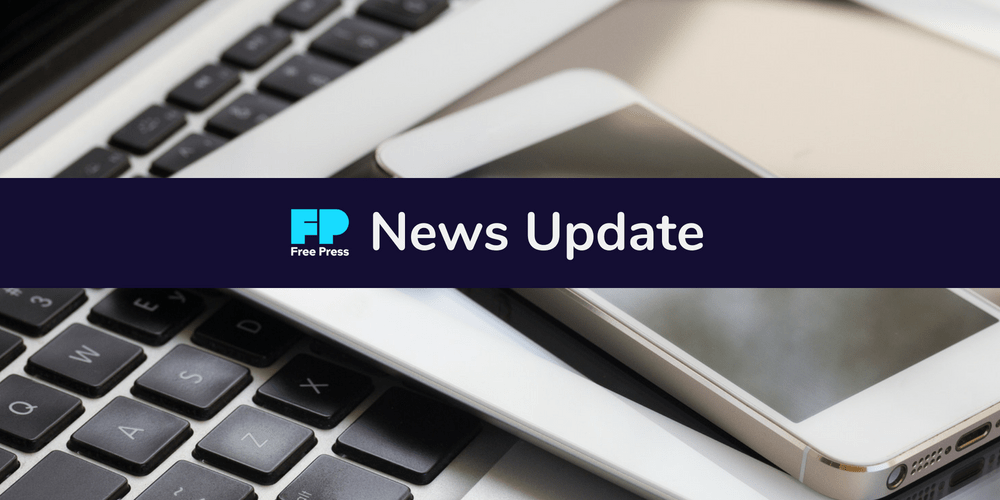Free Press: Communications Infrastructure Is as Essential as Levees, Bridges and Roads to Keeping People Safe During Climate Disasters

WASHINGTON — Hurricane Ida left large swaths of Louisiana without reliable cellphone services, including the complete loss of services in two of the parishes directly in the storm’s path. In addition, more than 300,000 homes lost cable and wireline services, according to Federal Communications Commission data released on Monday.
The region’s 911 call center was knocked out as well; calls for help went unanswered for 13 hours, leaving many people in serious danger with few to no options to contact emergency services. AT&T, which local governments contracted to ensure that emergency calls reached the 911 call center over landlines, didn’t deliver.
While major carriers, including AT&T and Verizon, announced that they were rushing crews into the storm-struck region to repair many networks that failed, it was far too late for many Louisianans who were unable to contact loved ones or emergency services — and of no use to the more than 1 million people who are without power, which may take weeks to restore in hardest-hit areas.
Earlier this year, the Government Accountability Office released a report that criticized the Trump FCC’s inadequate restoration of communications services in Puerto Rico after Hurricanes Irma and Maria knocked out essential networks in 2017. The GAO report acknowledged the dire need for greater interagency coordination, especially between the FCC and FEMA.
In the aftermath of those storms, Free Press repeatedly urged the FCC to use its authority to take proactive measures to ensure that communications infrastructures everywhere can withstand the types of disasters — be they hurricanes, wildfires or other catastrophes — that are striking the country with increased frequency as the climate crisis upends the fragile balance of the planet.
Free Press urges the FCC to thoroughly investigate major disruptions or outages of communications services and develop regulations and policies to strengthen our nation’s communications networks.
Free Press News Voices Director and Puerto Rico Working Group Member Vanessa Maria Graber made the following statement:
“The lesson in the wake of Hurricane Ida and other devastating storms is that resilient infrastructure saves lives. And while the new network of levees surrounding New Orleans held, the internet and phone networks in the city and surrounding parishes did not.
“Sound infrastructure investment can protect a city from flooding and maintain roads and bridges that people need to evacuate in the moments before a storm or other disaster strikes. Communications infrastructure is just as critical to keeping people out of harm’s way.
“The lack of even basic communications during climate disasters is a major obstacle to essential emergency and medical services and undermines critical relief efforts in the immediate aftermath. People without these essential services are unable to contact loved ones, employers and health-care providers in the days and weeks following emergencies like these.
“While the Biden FCC is doing a better job than its predecessor, more work is needed to prepare for storms and other catastrophic weather events that are striking the country with increased regularity. Calling these frequent disasters the ‘storm of the century’ in the media and elsewhere only gives utilities and regulators cover for being unprepared when the next one hits.
“People need an FCC that takes storms and wildfires seriously and pressures providers to build truly resilient communications networks. And we need bold infrastructure investments that include thoughtful planning and funding for networks that can withstand the multiple impacts of the climate crisis.
“Free Press has called on the FCC to clearly define its emergency role and be more transparent with the public about its efforts to restore emergency communications and protect against future failures. We call on the Biden FCC to do the same for Hurricane Ida: Investigate the communications outages — particularly the apparent loss of 911 service in Louisiana — to assess how the networks fared and how best to ensure those networks are resilient to the next climate-crisis-fueled disaster.
“The ability to communicate during a disaster is a matter of life and death, especially as the climate crisis has only intensified the harms of weather events. Whether it’s Hurricane Maria in Puerto Rico, wildfires in the west, the winter storm in Texas or Hurricane Ida, these deadly weather events have become all too common. This is why Free Press has long pushed the FCC and Congress to adopt policies that ensure the resiliency and accessibility of communication networks during extreme climate events. Lives are truly at stake.”